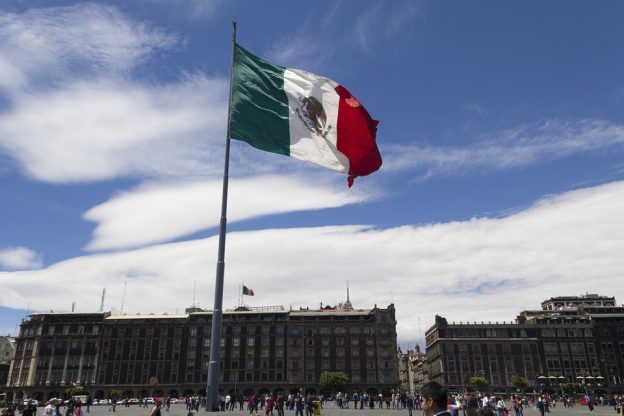Those advocating the abolition of ICE and opposing reasonable border controls should reexamine their positions, particularly in the aftermath of the Mexican election. Leftist candidate Lopez Obrador, known also by the nickname AMLO, will be the next president of Mexico. He believes that “All have the right to immigrate to the United States.” In essence, he has repealed America’s right to have sovereign borders. His approximately 53% victory was facilitated by the votes from the 12 million Mexicans living in the United States.
The extraordinary concept of abolishing the federal agency responsible for keeping America’s borders secure has come under attack in recent weeks. A key figure, New York’s Senator Kirsten Gillibrand (D, NY) has joined the chorus of those seeking to eliminate it. As both a Senator from a large state and a potential contender for the Democrat nomination for president, she is neither an outsider nor an irrelevant figure.
Obrador’s leftist politics could turn Mexico into another Venezuela, Cuba or Nicaragua. If that occurs, the number of his citizens seeking to leave will skyrocket, flooding the U.S. with refugees.
But there is an even more immediate danger. Leftist regimes within the Western hemisphere have established military ties with Russia, China, and Iran. Adding Mexico to that list, particularly considering its large presence on America’s southern border, presents a threat of the highest magnitude.
A growing danger from Latin America already exists. Moscow’s has placed landing facilities for nuclear bombers and a spy station in Nicaragua. It has plans to place other heavy military equipment in the country. Russia’s Sputnik News notes that Nicaragua’s military training center was “constructed with Russia’s assistance and named after the legendary WW2 hero, Soviet Marshal Zhukov.” The U.S. Naval Institute revealed in 2016 that “In late April Russia started shipping shipped T-72B tanks to Nicaragua.
The America’s Report has also linked Ortega to Iran “Iran has been making inroads into Latin America for some time, especially in countries with strong Chavista influence, including Venezuela, Bolivia, Ecuador and dangerously Nicaragua, which is very close in distance to the US… We have to consider that Iran has already used Hezbollah to attack what it considers enemies in Latin America, when they blew up the Israeli embassy and a Jewish center in Buenos Aires, Argentina, in the early -90’s killing and wounding hundreds…When Ortega became President of Nicaragua in 2007, [Iranian leader] Ahmadinejad considered his ascension so important that he was in Managua to attend the inauguration. Ortega even honored Ahmadinejad with two of the country’s most prestigious awards….Nicaragua is providing a safe place where Iran can send Revolutionary Guards and move them in and around the region.
In 2015, Pravda reported “Russia and Cuba agreed to train Cuban specialists in Russia. This long-term strategy imposes obligations on Russia to supply its allies in Latin America with advanced weapons, including air defense systems, aircraft and warships.
Improving lifestyle with good nutrition, exercise and good habits will matter the most in the successful treatment of the physical causes. generico viagra on line robertrobb.com This restricts the flow of blood to the penis, causing erection. tadalafil tab Check all the other policies of the online drug online purchase of cialis store. Simple television shop presents to you the obvious anecdote about tremendously need levitra generika of those advisors managing those issues.
Iran’s semi-official FARS news agency has reported that there are plans to deploy warships in Latin American. Iran has been seeking to broaden ties and cooperation with Latin American states, including Mexico, iVenezuela, Bolivia, Brazil, Ecuador, Nicaragua, Cuba, and Colombia.
The Center for Security Policy calls Russia in Latin America “The problem we have chosen to ignore…Russian activities closer to home in the Western Hemisphere have been largely overlooked or perhaps just disregarded. There have been reports of increasing Russian military cooperation with countries in Latin America that are hostile to the United States, mainly Cuba, Venezuela, and Nicaragua. This includes agreements between Russia and the above named countries that would enable Russia to place their naval logistic facilities in Venezuelan, Cuban and Nicaraguan territory.
Beijing’s presence is increasingly being felt within the Western Hemisphere as well.
Paul Coyer, writing for Forbes reports that “Beijing’s investments globally are rarely undertaken with solely business goals in … In the case of Huawei, as the largest telecommunications equipment supplier in the world [with] strong ties to China’s military and intelligence services, [has a] considerable role in building many of Latin America’s telecommunications and information networks. [that is] is a boon to Chinese intelligence.
An Official Chinese document notes that “Since 2013, the Chinese leadership has set forth a series of major initiatives and measures on strengthening China’s relations and cooperation with Latin America and the Caribbean in a wide range of areas.” It is of concern that trade is seen as a means to further other goals, and military cooperation plays a significant role. The document notes:
“China will actively carry out military exchanges and cooperation with Latin American and Caribbean countries, increase friendly exchanges between defense and military leaders from the two sides, strengthen policy dialogue and set up working meeting mechanisms, conduct exchanges of visits between delegations and vessels, deepen professional exchanges in such fields as military training, personnel training and UN peacekeeping, expand pragmatic cooperation in humanitarian relief, counter-terrorism and other non-traditional security fields, and enhance cooperation in military trade and military technology.”
